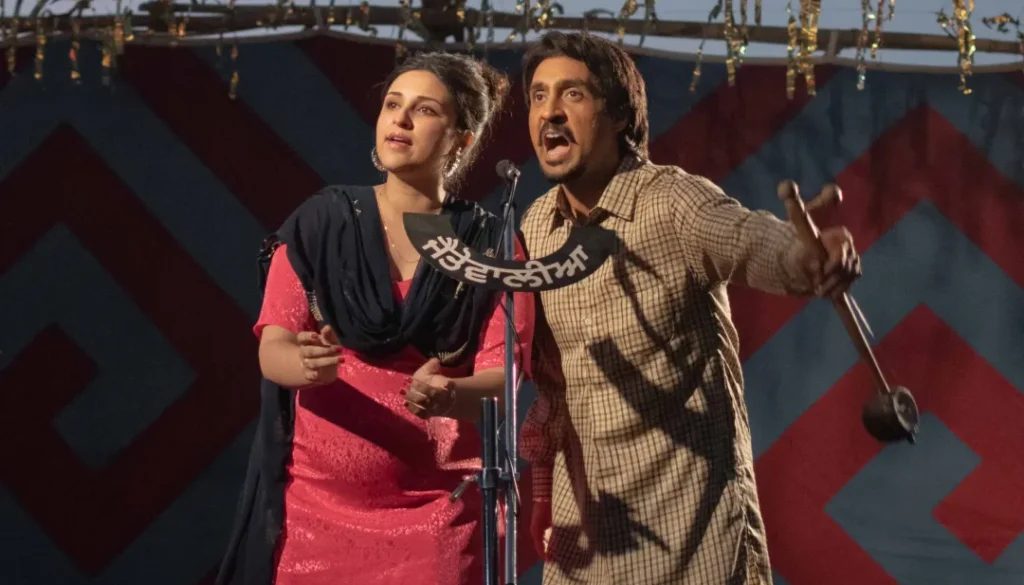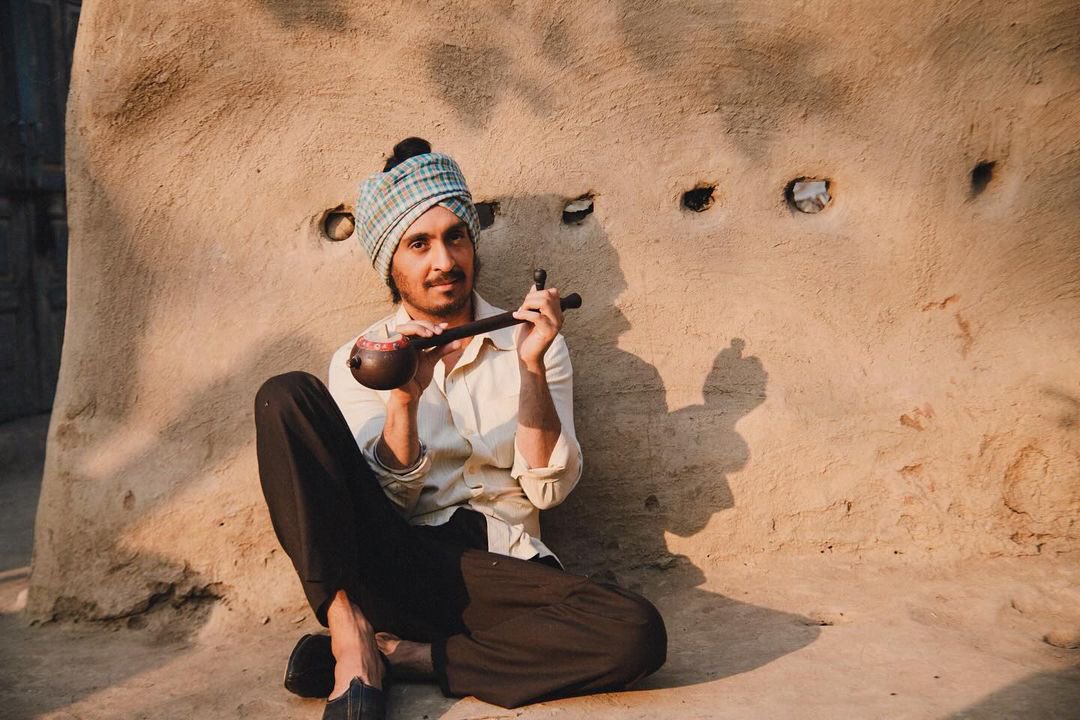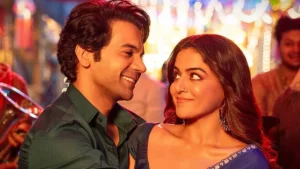
Years ago, when I watched Kabir Singh Chowdhry’s mockumentary Mehsampur with no context, its quotient of violence made me dizzy. The doomed story of Amar Singh Chamkila, a gifted artiste, was fascinating but the background of vendetta and cultural policing prevented me from treading those shores again. The interest resurfaced in 2022 when Punjabi rap sensation Sidhu Moose Wala was shot dead sending shockwaves across India and Canada.
Will Imtiaz Ali be resourceful enough to unearth information beyond Wikipedia and newspaper clippings from the ‘80s? Will the Netflix original musical drama expose the flawed facets of the art and the artiste?
Hailing from Panjab, Amar Singh Chamkila (Diljit Dosanjh) is an ardent admirer of Amitabh Bachchan. He might not have desired to become a superstar of such glory, but the starry halo constantly allured him. For a fact, Chamkila himself was a volcano of talent waiting to erupt. The youngster’s unique brand of risqué duets soon skyrocketed to popularity and earned him a sobriquet – ‘The Elvis of Punjab’.
Chamkila’s rise to fame isn’t without its share of roadblocks. If the religious and terrorist outfits constantly issued him ‘warnings’, his co-artistes and the Income Tax department are no small barriers. Things seem to have fallen into place when Chamkila meets Amarjot (Parineeti Chopra) – a shy woman who is a bundle of energy on stage. Hiccups notwithstanding, the duo enters a happy matrimony which extends their wildly successful on-stage collaboration.
 Amar Singh Chamkila opens with the infamous assassination. Before you learn anything about the singer-songwriter’s raunchy music (which may also be viewed as liberating), Imtiaz Ali hits you in the gut. The story of the singers, narrated in flashbacks, flaunts an obvious rebel vs vigilante flavor. While the screenplay never fully supports or projects its subject (Chamkila) as a poster boy of morality, Amar Singh Chamkila’s take isn’t fully objective either. The film quietly brushes the family equations under the carpet whilst the political side of the story is grossly under-addressed. It is also puzzling how Chamkila seldom defends his art despite being a man of many words who could manipulate the panchayat to turn things in his favor. The man remains glaringly submissive and fears threats while budging easily to his audience’s requests throwing himself into an abyss of danger. This very disorientation in the character sketch is something the film never explains.
Amar Singh Chamkila opens with the infamous assassination. Before you learn anything about the singer-songwriter’s raunchy music (which may also be viewed as liberating), Imtiaz Ali hits you in the gut. The story of the singers, narrated in flashbacks, flaunts an obvious rebel vs vigilante flavor. While the screenplay never fully supports or projects its subject (Chamkila) as a poster boy of morality, Amar Singh Chamkila’s take isn’t fully objective either. The film quietly brushes the family equations under the carpet whilst the political side of the story is grossly under-addressed. It is also puzzling how Chamkila seldom defends his art despite being a man of many words who could manipulate the panchayat to turn things in his favor. The man remains glaringly submissive and fears threats while budging easily to his audience’s requests throwing himself into an abyss of danger. This very disorientation in the character sketch is something the film never explains.
In Amar Singh Chamkila, the eponymous musician is shown as a passionate man who gathers the courage to take criticism with a pinch of salt. In a key scene where Chamkila is about to receive yet another warning, the singer requests to make it fast so he can go out and perform. Imtiaz Ali propels it further with a song (‘Naram Kaalja’) where the local women are shown breaking roofs as they flock in large numbers to enjoy his salacious songs. While the angle of female acceptance might not have been necessary to prove a point, the musicians’ story, on this date, can viewed with empathy. With Chamkila’s music lacking an intellectual or emotional appeal, the film rightfully underlines casteism and classism that were/are prevalent in society and art alike.
A full-blown musical, Amar Singh Chamkila is chronicled through its subject’s popular numbers (performed live by Diljith Dosanjh, Parineeti Chopra, and Nisha Bano). A R Rahman lends his masterly hands to create a melodious atmosphere with a soundtrack that’s for the ages. If ‘Tu Kya Jaane’ (a distant cousin of ‘Heer’ from Jab Tak Hai Jaan) has a velvety quality, ‘Baaja’ is a rousing invitation to Chamkila’s vibrant world. Irshad Kamil’s poetry is the crowning glory in the Arijit Singh-rendered ‘Vida Karo’.
ALSO READ: Imtiaz Ali’s ‘Jab We Met’ – A ‘Khuli Tijori’ of Life Lessons
Narrated with sleekly inserted original video and still footage from Chamkila and Amarjot’s life, Imtiaz Ali makes his film as personal and vivid as possible. The comparison reels where Dosanjh and Chopra dexterously imitate their characters’ mannerisms – highlighting their mettle as performers – are somewhat eerie if we think of what happened to the singer duo eventually.
Expectedly so, Amar Singh Chamkila is an out-and-out Diljit Dosanjh show where the actor breaks out to deliver what is his best work in Hindi cinema yet. Be it the physicality, the (obvious) hold over the language, or the rapturous singing, he is tremendous in every frame that he is in. Parineeti Chopra’s internalized portrayal of Amarjot is another major win in Imtiaz Ali’s film. Although we do not get a deep glimpse of the character’s thought processes, the actor’s transformation (which includes a changed physicality) makes the woman appear warm and real. Amar Singh Chamkila is also a quiet indicator of how Bollywood brutally wasted her potential in a career of over a decade. Anjum Batra as Tikki is aptly cast whereas the rest of the supporting cast lends the leading duo able support.
Imtiaz Ali’s film, despite its refusal to make a profound social commentary, ends up as a fine tribute to Amar Singh Chamkila’s brilliant legacy. The film makes us want to discover the artiste’s celebrated work and his unique sub-genre in Punjabi music. One might comfortably label Chamkila and Amarjot as talents ahead of their times although the bigger question is whether their fate would have been any different in 2024 – an equally violent era, if not more polarizing and intolerant.
Rating: ★★★ 1/2
Amar Singh Chamkila is now streaming on Netflix.

